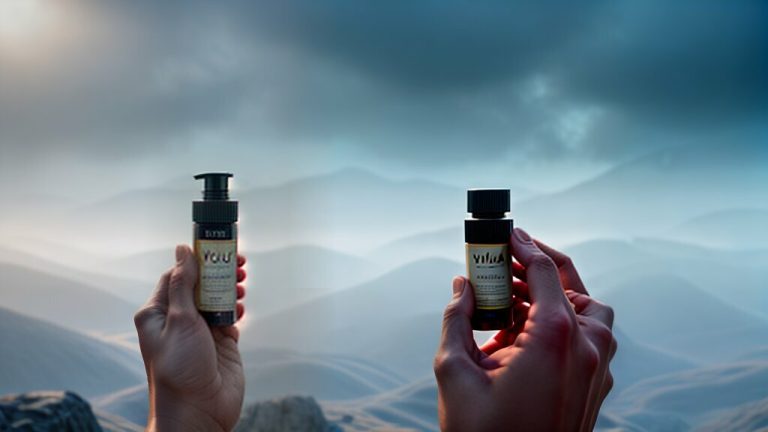Many people desire a lighter, more radiant complexion, but achieving this can be challenging. This article will explore safe and effective methods for attaining more delicate skin, including natural remedies, skincare routines, and professional treatments. For more, you can go for how to fill a Butane lighter.
Understanding the science of skin pigmentation is essential for successfully lightening the skin tone. The amount and production of melanin by melanocytes determine skin color. By incorporating the proper skincare routine and natural remedies and making small dietary and lifestyle changes, individuals can achieve a brighter and more even complexion.
Key Takeaways
- Safe and effective methods can help individuals achieve a lighter and more even skin tone.
- The amount and production of melanin by melanocytes determine skin color
- A combination of skincare routines, natural remedies, dietary and lifestyle changes, and professional treatments can help in achieving a brighter complexion
Understanding Skin Pigmentation
Skin pigmentation refers to the color of an individual’s skin, primarily determined by the amount of melanin produced by melanocytes in the skin. Melanin is a pigment that protects against the harmful effects of sun ultraviolet (UV) radiation, thus making it an essential factor in regulating skin health.
There are two main types of melanin – eumelanin and pheomelanin. Eumelanin is responsible for brown and black skin tones, while pheomelanin contributes to reddish and yellowish tones.
The amount of melanin produced by melanocytes depends on various factors, including genetics, exposure to sunlight, and hormonal changes. For example, individuals with darker skin tones typically have more active melanocytes and produce more melanin than those with lighter skin tones.
Understanding the science of skin pigmentation is essential when considering methods for achieving lighter skin. Changes in skin tone should be approached with caution to avoid damaging the skin or causing long-term harm.
Skincare Routine for Lighter Skin
Aside from skin-lightening products, a proper skincare routine is vital in achieving a brighter complexion. By following this daily regimen, you can help reduce hyperpigmentation and enhance your natural glow:
| Morning Routine | Night Routine |
|---|---|
|
|
It’s also important to note that the products you use can significantly affect the outcome of your skincare routine. Look for skin-brightening products such as vitamin C, kojic acid, and licorice root extract. Avoid harsh chemicals such as hydroquinone, which can cause skin irritation and damage.
To keep your skin looking bright and healthy, exfoliate once or twice a week to remove dead skin cells and promote cell turnover. You can use a gentle physical exfoliator or a chemical exfoliator that contains alpha or beta hydroxy acids.
Always use sunscreen with an SPF of 30 or higher to protect your skin from UV damage, which can cause hyperpigmentation and premature aging.
Natural Remedies for Lighter Skin
Some individuals may prefer natural remedies for lightening their skin tone. While these methods may not yield results as quickly as professional treatments, they can still be effective with consistent use.
Lemon Juice
Lemon juice contains natural citric acid that can help lighten the skin tone. Simply squeeze fresh lemon juice onto a cotton ball and apply it to the skin. Leave it on for 15-20 minutes before rinsing with water. Be careful not to use too much lemon juice, which can cause skin irritation.
Aloe Vera
Aloe vera is a natural moisturizer that can also help promote a more even skin tone. Apply fresh aloe vera gel to the skin and leave it on for 20-30 minutes before rinsing with water. Aloe vera can also soothe and calm irritated skin.
Papaya
Papaya contains an enzyme called papain that can help exfoliate the skin and promote cell turnover. Mash a ripe papaya and apply it to the skin for 15-20 minutes before rinsing with water. This can help improve the appearance of dark spots and uneven skin tone.
Turmeric
Turmeric has long been used in traditional medicine for its anti-inflammatory and antioxidant properties. Mix turmeric powder with milk or honey to create a paste and apply it to the skin for 10-15 minutes before rinsing with water. This can help brighten the complexion and improve overall skin health.
Remember that natural remedies may take longer to show results than professional treatments. It’s essential to be patient and consistent with their use. Additionally, it’s always a good idea to patch test on a small skin area before applying a natural remedy to the entire face.
Dietary Changes for Lighter Skin
While topical products and skincare routines play a significant role in achieving lighter skin, dietary changes can also considerably impact skin health. Consuming certain foods and avoiding others can help promote a brighter and more even complexion.
Foods for Lighter Skin
Some foods that can help promote lighter skin include:
| Food | Benefits |
|---|---|
| Tomatoes | Rich in lycopene, a potent antioxidant that can protect the skin from sun damage and promote a brighter complexion |
| Leafy Greens | High in vitamin C, which can help reduce the production of melanin, resulting in a lighter skin tone |
| Fatty Fish | Contains omega-3 fatty acids, which can aid in reducing inflammation and promoting skin elasticity |
| Almonds | Rich in vitamin E, an antioxidant that can protect the skin from damage and help prevent hyperpigmentation |
In addition to these foods, staying hydrated by drinking plenty of water throughout the day can help keep the skin fresh and radiant.
Lifestyle Changes for Lighter Skin
Aside from diet, certain lifestyle changes can contribute to overall skin brightness and clarity. Avoiding smoking and limiting alcohol consumption can help prevent premature aging and skin damage. Getting sufficient sleep and managing stress levels can also support healthy skin.
By incorporating these dietary and lifestyle changes into your routine, you can promote a brighter and more even skin tone, complementing your skincare routine and achieving the lighter complexion you desire.
Non-Invasive Treatment Options
If you’re looking for a way to achieve lighter skin without undergoing invasive procedures, several non-invasive treatment options are available.
Topical Creams
Topical creams and serums are a popular choice for those seeking lighter skin. Look for products containing ingredients such as hydroquinone, kojic acid, or glycolic acid, which can help reduce melanin production and promote a more even skin tone. It’s important to note that these products can take several weeks to show results, so be patient and consistent with your use.
Chemical Peels
Chemical peels involve applying a solution to the skin that causes the top layer to peel away, revealing smoother and brighter skin beneath. These treatments can effectively treat hyperpigmentation and promote a more even skin tone. However, they can also be harsh on the skin and may require several days of downtime while the skin heals.
Laser Treatments
Laser treatments use intense beams of light to reduce the amount of melanin in the skin, resulting in a lighter complexion. These treatments can effectively treat skin concerns, including hyperpigmentation and acne scars. However, they can be expensive and require multiple sessions to achieve desired results.
When considering non-invasive treatment options, it’s essential to consult with a dermatologist or licensed skincare professional to determine the best course of action for your skin concerns.
Professional Treatments for Lighter Skin
If natural remedies and regular skincare routines do not provide the desired results, a variety of professional treatments can help lighten the skin tone. However, it is essential to consult a dermatologist before proceeding with these procedures, as they may carry risks and potential side effects.
Chemical Peels
A chemical peel is a procedure in which a chemical solution is applied to the skin, causing it to blister and peel off. This process helps remove dead skin cells, promoting the growth of new, lighter skin. Chemical peels are available in different strengths, with deeper peels significantly impacting skin color. However, it is essential to note that deeper peels also carry a higher risk of complications.
Microdermabrasion
Microdermabrasion is a non-invasive procedure involving removing the top layer of skin using a particular device. This process helps reduce the appearance of dark spots and promotes smoother, lighter-looking skin. However, multiple treatments may be needed to achieve the desired results.
Laser Treatments
Laser treatments use intense beams of light to remove the outer layer of skin, promoting the growth of new skin cells and removing pigmentation issues. This procedure requires multiple sessions and may cause redness and swelling but typically has fewer side effects than chemical peels.
While these treatments can effectively achieve lighter skin, they should only be performed by a licensed and experienced dermatologist. Following post-procedure instructions carefully and avoiding sun exposure to prevent further skin damage is also crucial.
Maintaining Healthy Skin
After achieving a lighter complexion, it is essential to maintain healthy skin to sustain the results. Here are some essential tips to follow:
- Stick to a consistent skincare routine: Continue to use the products and techniques that helped you achieve a lighter complexion, and be sure to cleanse, tone, and moisturize daily.
- Protect your skin from the sun: Wear sunscreen daily, even on cloudy days, and avoid prolonged sun exposure, especially during peak hours.
- Avoid smoking: Smoking can damage the skin, leading to premature aging and discoloration.
- Stay hydrated: Drink plenty of water and eat water-rich foods to keep the skin plump and hydrated.
- Eat a balanced diet: Incorporate a variety of fruits, vegetables, and lean proteins into your diet to provide essential nutrients for skin health.
By following these tips and making small lifestyle changes, you can maintain healthy and youthful-looking skin after achieving a lighter complexion.
Conclusion
Getting lighter skin can be a daunting challenge, but with the right approach, it is achievable. This article explores safe and effective methods for achieving a brighter and more radiant complexion.
Understanding the science of skin pigmentation is crucial in determining the most effective method for achieving lighter skin. A comprehensive skincare routine, complete with key products and natural remedies, can promote an even skin tone.
Furthermore, making dietary changes to include foods that promote skin health and protect the skin from harmful UV rays can support long-term skin health, for those seeking professional treatment options, non-invasive and professional treatments are available.
At the end of the day, maintaining healthy skin requires consistent effort. Following the tips and methods discussed in this article can achieve a lighter complexion while promoting overall skin health.

I’m Alfred Davis, and I’m all about lighters. Hailing from the great state of Texas, USA, I’ve cultivated a deep passion for these fascinating gadgets. With years of hands-on experience and a burning curiosity (pun intended), I’ve become an expert in all things related to lighters.
My journey with lighters began as a hobby and quickly became a full-blown obsession. I’ve explored the diverse world of lighters inside and out, from classic Zippo designs to modern plasma arc models. I’ve tested, tinkered with, and even collected rare pieces while learning the intricate mechanics and unique histories behind each one.
Through my writing, I aim to share my knowledge, insights, and reviews to help you make informed decisions about choosing the perfect lighter. Whether you’re a seasoned collector or just looking for a reliable fire source, I’ve got you covered. Join me in unraveling the fascinating realm of lighters right here at LightersInfo, where ignition meets expertise.
Alfred Davis

